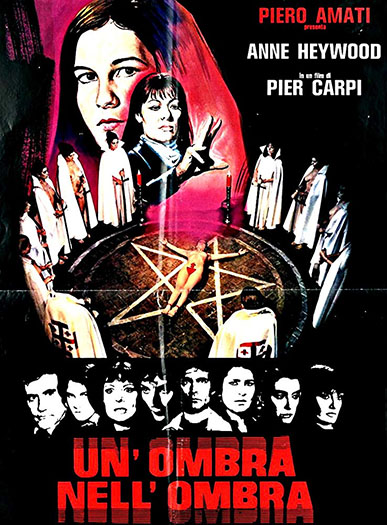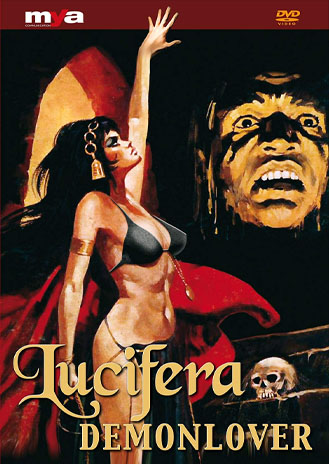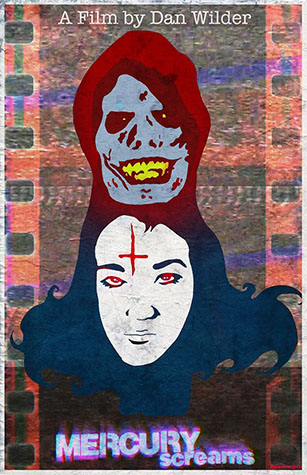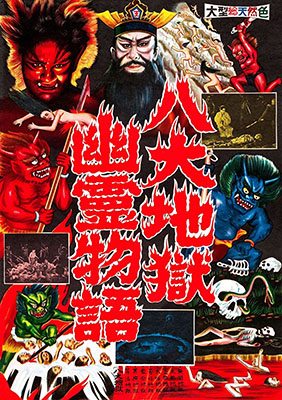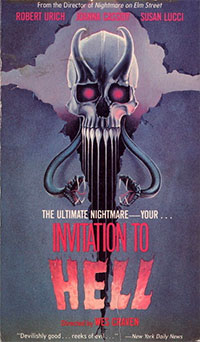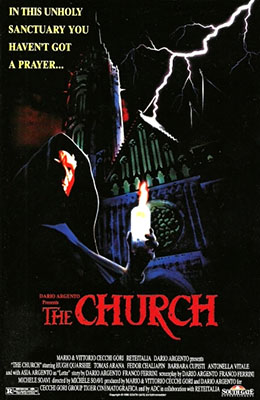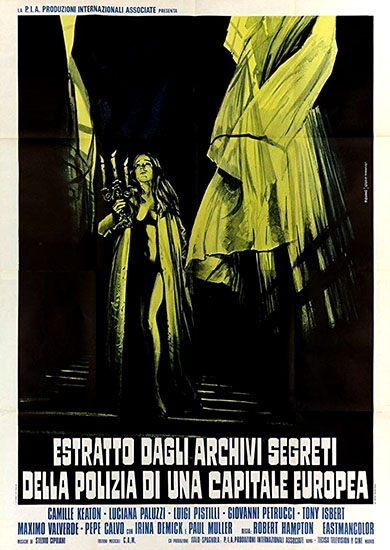
Tragic Ceremony (1972)
One stormy night, four friends, led by rich boy Bill (Tony Isbert), run out of gas while returning from a camping trip and stop at a mansion for help. The lord of the house (played by Luigi Pistilli) invites them in but he is distracted by the group of Satanists he is entertaining. When one of the four friends, Jane (Camille Keaton), is to be used as a sacrifice in a ritual, Bill and his friends step in. After Bill accidentally kills the lady of the house (Luciana Paluzzi), the entire group of Satanists goes berserk and the night ends in bloodshed. The four friends flee the mansion with their lives but have no idea that there are still in grave danger.
One of Italy’s unsung heroes of horror, Riccardo Freda, directs this follow up to his 1971 giallo The Iguana with the Tongue of Fire. Though Tragic Ceremony takes a while to get going and is a little confusing (intentionally?), I can’t help but be happy about its DVD debut. The film is definitely a bizarre one. Its plot is as shaky as the sometimes inept yet elegant cinematography. How does that work? The lighting is acceptable but there are some occasional moments of brilliance. I really like Stelvio Cipriani’s sweeping, melodramatic, and overly sentimental score for the film.
Camille Keaton of I Spit on Your Grave is quite good as Jane, the haunted, strange, and sometimes callous young woman that everybody (especially the Satanists) wants a piece of. Surprisingly, the main male actors in Tragic Ceremony are pretty dang good (not what I was expecting). While they may have some weak dialogue to contend with, Tony Isbert (I find that very amusing (is he really Bert?)), Máximo Valverde, and Giovanni Petrucci, all still manage to perform competently in this weird and somewhat wandering horror film.
My only gripe about the casting is that the late and oh so very great Luigi Pistilli is totally wasted in his brief role. Maybe he did it as a favor to the director but I was kind of disappointed by what is little more than an extended cameo. What can I say? This intense and charismatic guy is one of my favorites. Check out Your Vice Is A Locked Room And Only I Have The Key for one of his finest performances.
Those uninitiated into the world of Eurohorror might be alienated by this odd little number but diehard fans of the genre (and fans of Riccardo Freda especially) need to check out Tragic Ceremony. This flick has got some silly ass psychobabble, gratuitous nudity, supernatural hokum, ludicrously over-the-top gore, and even some sweet, sweet gothic excesses tossed in for good measure. Don’t let the meandering and fairly obvious plot put you off. I’m telling you, this one is worth it.
“The lady had exceptional mediumistic powers.”
